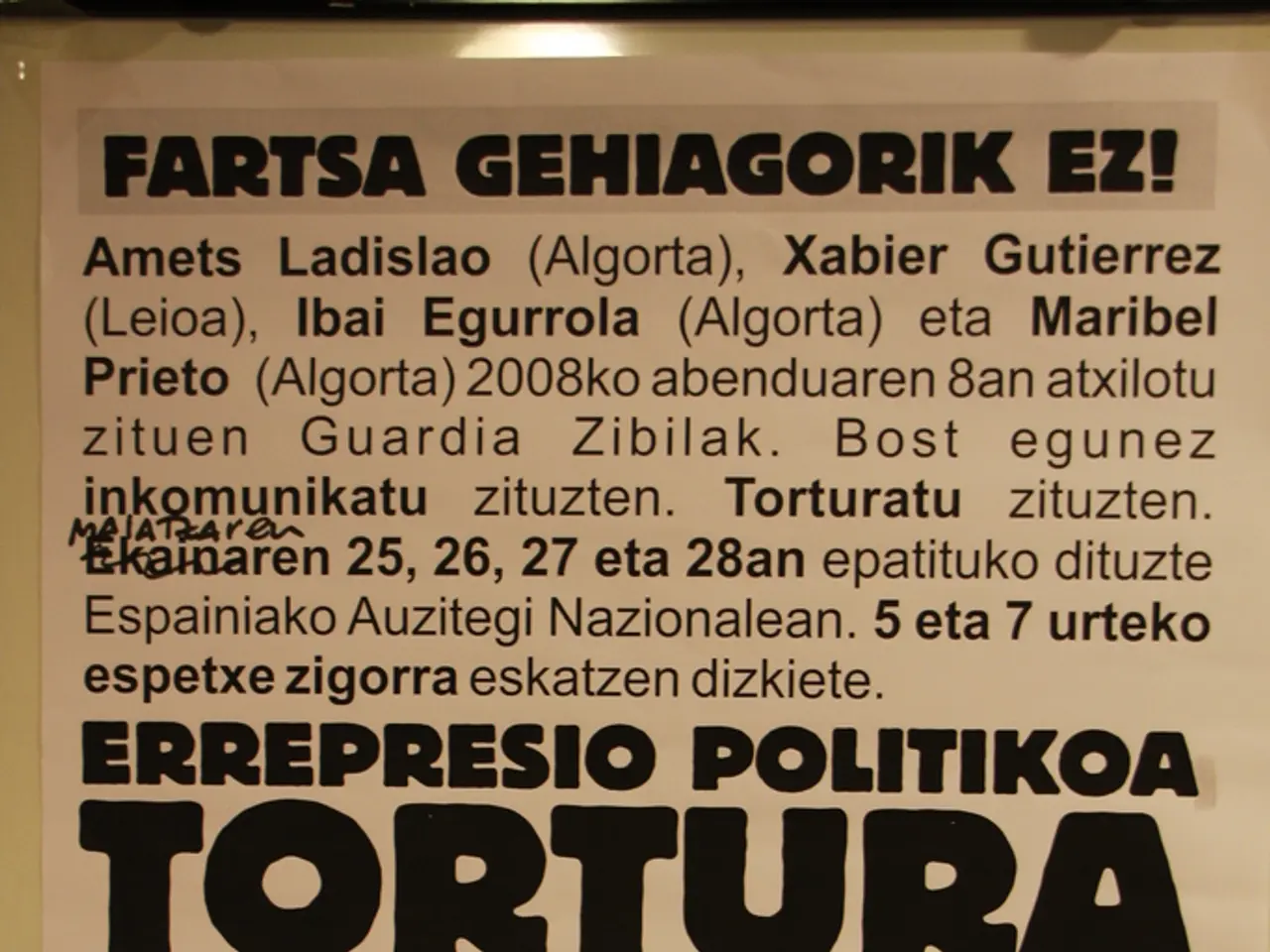Opposition parties in Spain call for immediate measures against human trafficking
In a significant move, the Spanish centre-right Partido Popular (PP) has formally requested the appearance of Interior Minister Fernando Grande-Marlaska and the Director General of the Guardia Civil, Mercedes González, before the Spanish Parliament. The request underscores the significance of 'petaqueo' as a pressing issue in Spain's ongoing efforts to combat drug trafficking.
'Petaqueo' is a practice used to supply fuel to small high-speed boats, known as narcolanchas, used for smuggling drugs in international waters. This practice has become a significant logistical component for drug trafficking organisations, particularly in the Strait of Gibraltar region.
The practice involves the use of floating fuel stations that enable vessels to remain at sea for extended periods without returning to port, facilitating uninterrupted smuggling operations. Authorities in Jerez de la Frontera recently seized nearly 5,000 litres of gasoline intended for narcolanchas, highlighting the extent of the problem.
Currently, 'petaqueo' is not explicitly defined as a criminal offence in Spain's Penal Code, but judicial bodies have begun to address the issue. In 2024, the Audiencia Provincial de Cádiz ruled that transporting fuel for narcolanchas could be prosecuted under Article 568 of the Penal Code, which addresses collaboration with criminal organisations.
However, the PP has expressed concern about the insufficiency of current legal measures to combat petaqueo effectively. They have called for comprehensive legislative reforms to explicitly criminalize the act of supplying fuel to narcolanchas.
The Spanish government has initiated discussions on legislative reforms to address petaqueo, with a commitment to enhancing legal tools to combat this form of drug smuggling. Minister Marlaska and Director General González are anticipated to present information on the scope of petaqueo activities, current enforcement strategies, and proposed legislative changes during the upcoming parliamentary hearings.
The hearings aim to foster a comprehensive understanding of the issue and to develop coordinated approaches to mitigate the impact of petaqueo. The practice poses significant challenges to law enforcement agencies, including difficulties in intercepting these operations.
The Spanish government supports these reforms, aiming to clarify the penalties for those involved to strengthen the fight against drug trafficking. The upcoming discussions promise to be a crucial step in recognising and addressing the practice of 'petaqueo' within the legal framework.
Read also:
- Lu Shiow-yen's Challenging Position as Chair of the Chinese Nationalist Party (KMT) Under Scrutiny in Donovan's Analysis
- Fun-Filled Mother's Day Activities and Educational Insights
- Baltimore Card Counter Files 3 Million Dollar Lawsuit Against Casino for Unlawful Detention Over Horseshoe Casino Allegations
- House Representation Originally Meant to Be Close to the People; Redistricting Risks Undermining This Connection








